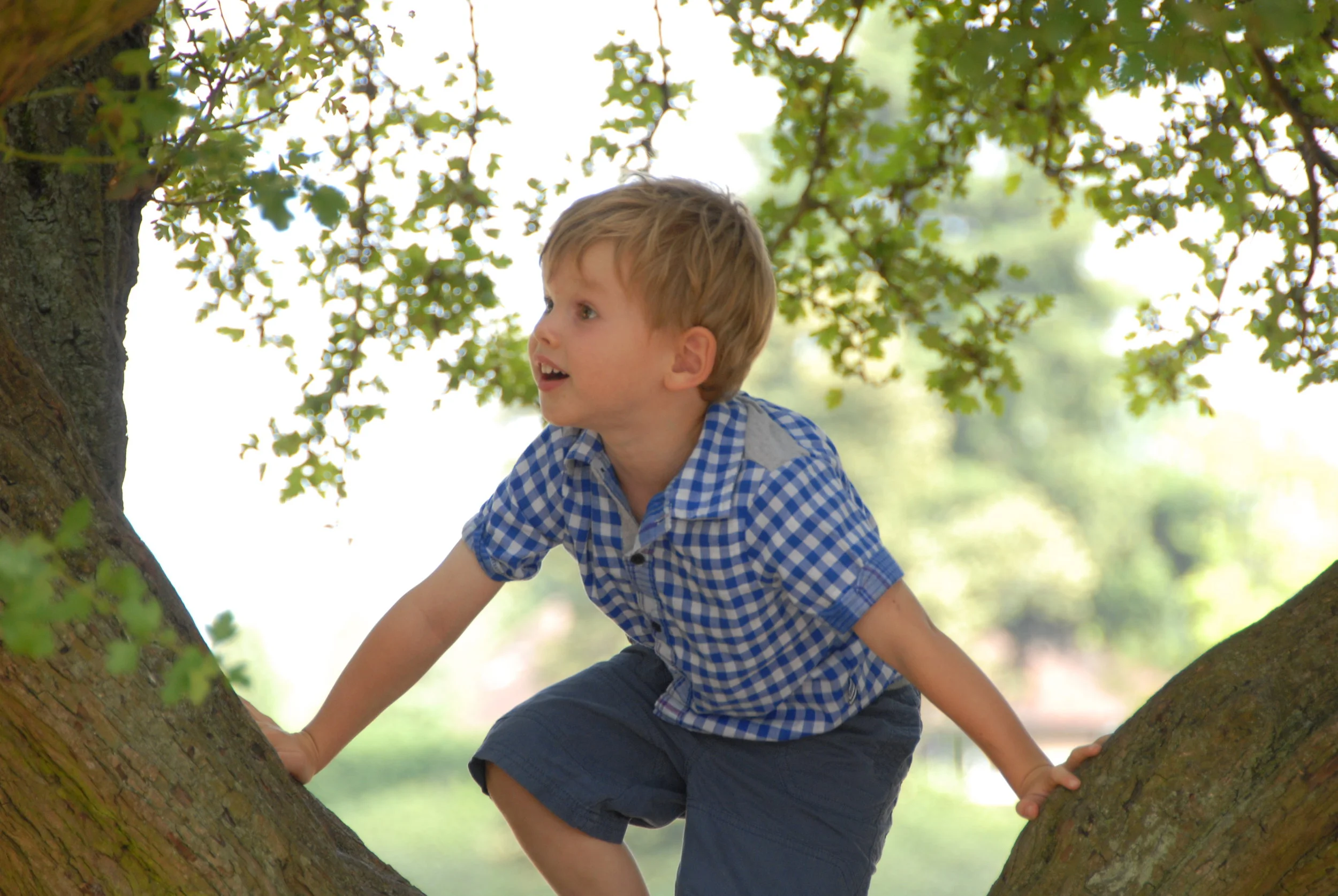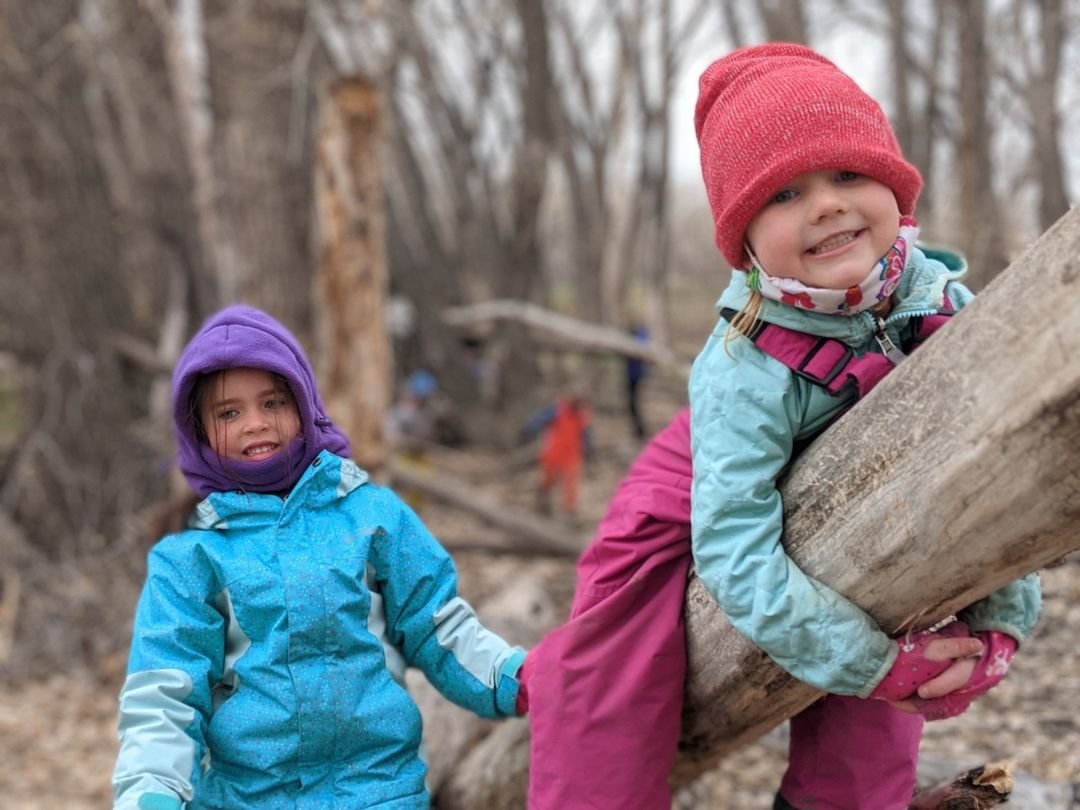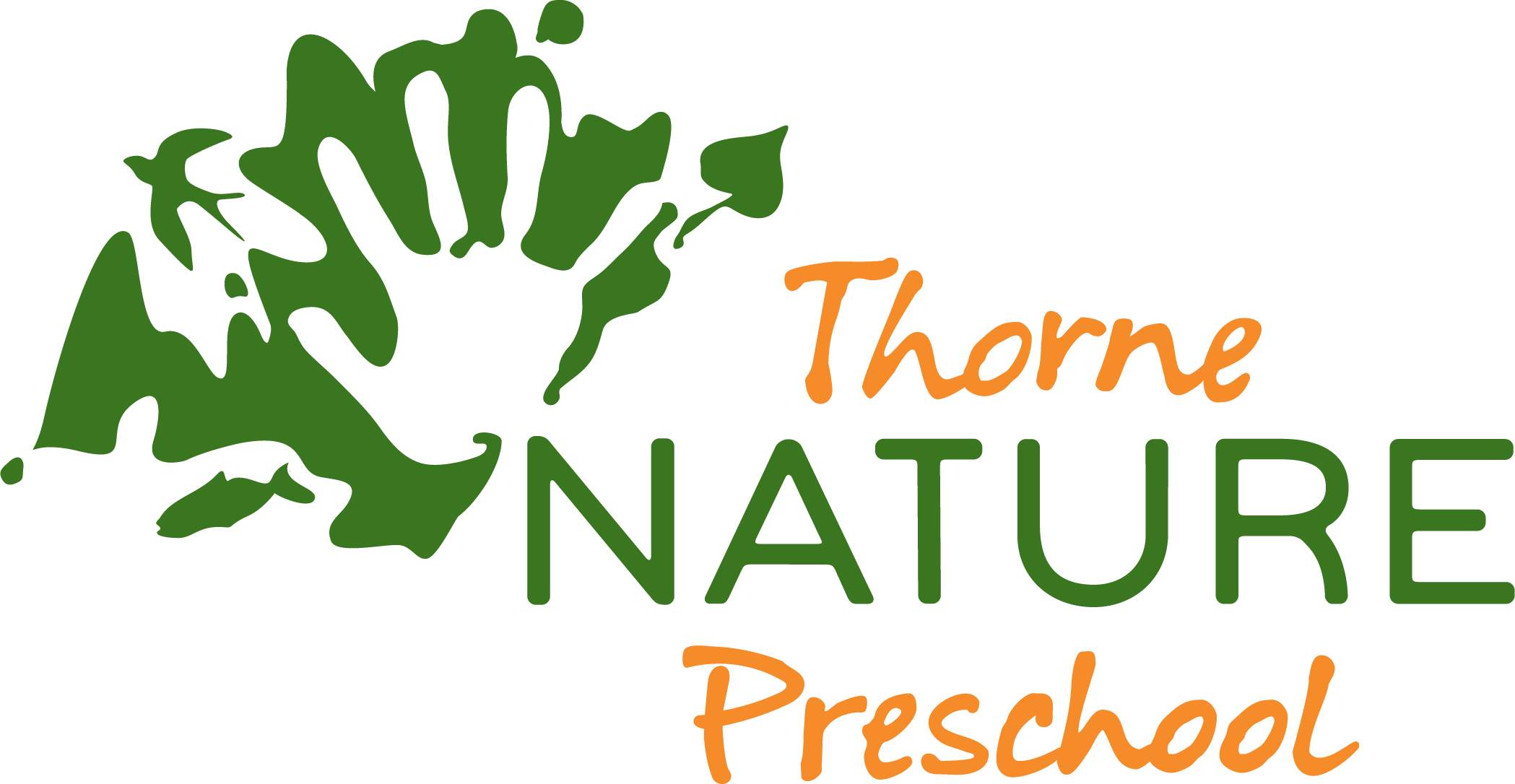
What is Nature-based Early Childhood Education?
Nature-based Early Childhood Education is learning that is rooted in the local natural world and uses nature as the organizing principle to address both early child development and the development of an ecological identity. Nature is both the classroom and a teacher, and learning happens almost exclusively outdoors; where there are endless opportunities to grow and learn. In nature, children explore, jump, balance, solve problems, learn empathy, cooperate with others, and play, all while engaging in early literacy, science, math, and social emotional learning. While predictable rituals and routines guide children into learning, nature-based education allows children’s interests and curiosity to direct the day’s activities and inform the curriculum. There is a growing body of research that shows that this type of frequent play in nature-based early childhood education programs stimulates all of a child’s developmental domains, including their cognitive, creative, physical, social and emotional, and spiritual development. Children discover the wonders of the landscape surrounding them, while also discovering their inner landscape through meaningful relationships with mentors, classmates, and nature.

Thorne Nature Preschool Educational Philosophy
Thorne Nature Preschool provides an early childhood educational experience that initiates young children into a deep relationship with the natural world and plants the seed for life-long environmental stewardship. Through daily immersion in nature with caring mentors and a focus on supporting early childhood development, Thorne Nature Preschool fosters the growth of the whole child - cognitive, physical, social, emotional, creative - while cultivating a profound connection to nature. Utilizing integrated academic and social curriculum grounded in nature, Thorne Nature Preschool nurtures the well-being of each child while preparing them to succeed in school and in life. Thorne believes that every child is a unique and competent individual who is eager to explore and learn and comes equipped with a natural and wonder-filled curiosity about life. By tapping into children’s love of learning, Thorne Nature Preschool strives to develop prepared, capable, confident, empathetic individuals who are masters of their own learning, and are inspired to make a difference in the world.

Core Beliefs
Nature promotes the health and well-being of the whole child.
Nature is the ideal venue for academic growth, imaginative play, social and emotional learning, problem solving, and promoting active play.
Frequent, immersive experiences in nature with a mentor cultivates an environmental ethic.
Place-based environmental education connects children to their local community and is the starting point for responsible citizenship.
Today’s youth are tomorrow’s environmental stewards and leaders.

Goals
To prepare each child socially and academically to succeed.
To develop a sense of place and foster a deep connection to the natural world.
To cultivate a strong, supportive, inclusive community between classmates, families, and preschool staff.
To enable each child to reach their full potential by meeting each child’s social, emotional, and academic needs and helping them grow.

Educational Approach
The Thorne Nature Preschool staff promotes learning by:
Utilizing nature as the organizing principle for all learning experiences.
Integrating developmentally appropriate best practices in early childhood and environmental education.
Focusing on all aspects of child development:
Cognitive - Nurturing children’s innate love of learning through rich, experiential, educational, emergent curriculum that follows children’s interests and curiosity.
Social and Emotional - Fostering self-confidence and empathy for others through self-awareness, collaboration, conflict resolution, and finding solutions.
Physical - Building resiliency and promoting health through active play, appropriate risk-taking, and self-regulation as children experience nature in all seasons and weather conditions.
Creative - Encouraging creativity and curiosity through art, storytelling, and imaginative play.
Spiritual - Cultivating reverence, awe, and respect for the natural world through direct experience with the wonders of nature.
Providing an environment which encourages children to actively explore, play, discover, express themselves, and take responsibility for their actions.
Providing mindful mentorship that demonstrates care for ourselves, each other, and the world around us, while appreciating the individuality of each child and celebrating their uniqueness.

Integrated Curriculum
Thorne Nature Preschool has dual goals of fostering whole-child development and cultivating environmental literacy. The curriculum, therefore, promotes early childhood education through nature immersion, and puts the child at the center of learning. Play in nature is at the heart of Thorne’s curriculum, but early literacy, math, science, arts, social emotional learning, and physical development are all addressed in an integrated and authentic way through experiences in nature.
While teachers act as guides, Thorne Nature Preschool’s curriculum also allows for a “choose your own adventure” experience that follows children’s interests. Imagine the surprise and joy of seeing a bald eagle fly overhead, and how this simple experience can inspire a whole unit of learning on eagles including research into their lives and behaviors, art projects, poetry, games, and so much more. In this way, as interests emerge and the serendipity of nature occurs, teachers will adapt their activities and curriculum.
Thorne Nature Preschool curriculum is influenced by many early childhood programs, including Reggio Emilia, Waldorf, and Montessori but adds in best practices for nature connection, including a technique called Flow Learning from Joseph Cornell. Flow Learning is a simple framework for getting the most out of nature experiences, and follows 4 stages:
1) Awakening Enthusiasm
2) Offering Direct Experiences
3) Focusing Attention
4) Sharing Inspiration
On a given day, an example of this flow could look like: 1) Beginning with an inspiring story about an animal; 2) “Becoming” that animal through movement; 3) Building a habitat in nature for that animal; and 4) Group sharing about the special attributes of each habitat.
Behind this experience children are developing a love of learning and a connection to nature, while also practicing early literacy skills, dramatic/creative play, physical education, STEM education (engineering), and social emotional learning, to name a few. Using techniques like Flow Learning, teachers will provide a daily routine with predictable rituals, but they will also allow plenty of time for unstructured play and exploration with the active presence of teachers.
Resources
Follow this link to learn more about nature-based education, see instructions for some of our favorite activities, and view helpful articles and books.
